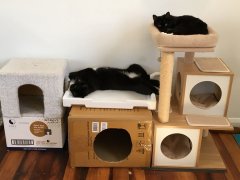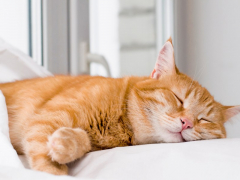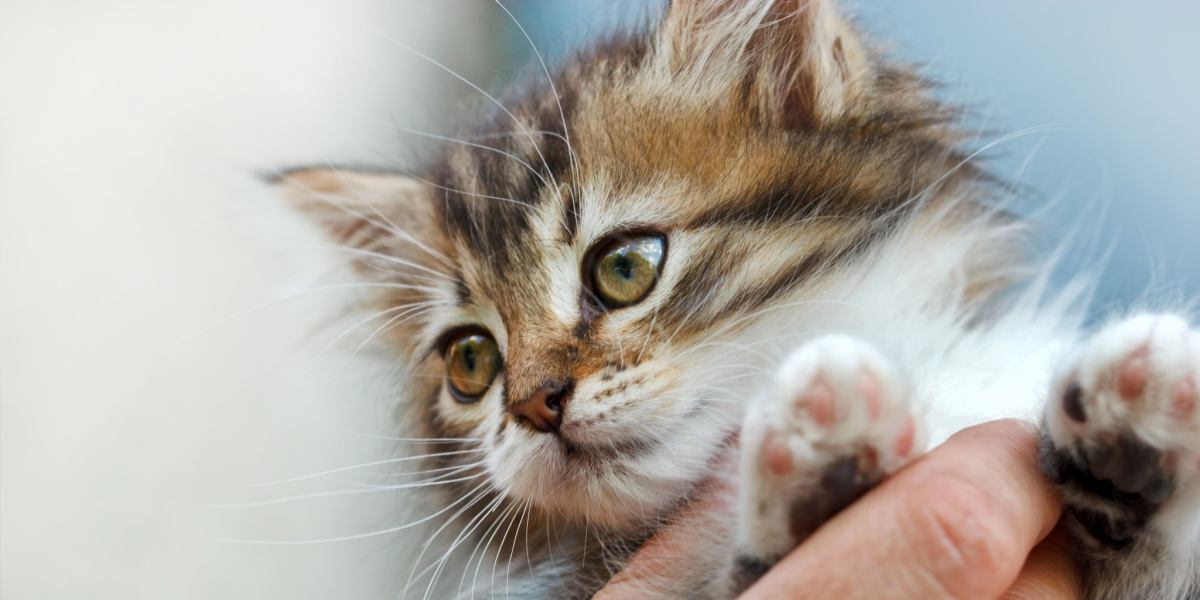
Over the last decade, our use of animals to detect human medical conditions has increased. While most medical detection and alert animals tend to be dogs, there has been a suggestion that cats might be just as good, or maybe even better, in this role than their canine comrades.
Cats cannot sense autism in children or adults, but studies suggest that having a pet cat can benefit people with autism spectrum disorder. Adopting a cat has been associated with greater empathy, less separation anxiety, and fewer behavioral issues for children with ASD. Not all cats are suited to be companions for someone with ASD, but many breeds and individuals are options for families with ASD as a cat's personality is key to finding the best fit.Key Takeaways
Therefore, it is understandable some pet parents wonder if their cat can detect medical disorders. Given that autism spectrum disorder (ASD), especially in girls and young women, can go undetected until later in life, have you ever wondered if your cat can sense autism?
What Is Autism?
Autism, also termed autism spectrum disorder (ASD), is a broad range of conditions that lead to challenges in social communication and interaction or repetitive behaviors. People with autism differ in how their brains develop and process information. This means those with ASD might learn, move, or interact differently from neurotypical people.
People with autism might also have sensory issues and struggle with social cues or certain stimuli. Symptoms can be mild to severe, and there are different recognized sub disorders which is why autism is considered a “spectrum.” Asperger’s syndrome and pervasive developmental disorders also fall within the autism spectrum.
Can My Cat Sense Autism?
In recent years, animals have been increasingly used to detect medical conditions or to alert their owners to disease episodes (such as low blood sugars for diabetic owners or impending seizures for epileptic owners).
Typically, dogs tend to be used for their compliance and trainability. It does, however, stand to reason that cats mighht also have the ability to detect diseases in humans. A scientific review of cats’ ability to detect different smells has suggested this might be an area for future research, given how complex feline smell truly is!
Autism is an invisible disorder resulting from altered neurological developmental that leads to differences in the brain. We currently do not have any evidence that any animal species can detect autism. Animals, cats included, will, however, recognize differences in human behavior to what they consider “normal” or, more appropriately, “neurotypical” for humans.
A cat that grew up in a neurotypical household may find the outbursts or meltdowns associated with severe ASD frightening and react differently around someone with autism. This is not the cat detecting the developmental disorder; instead, the cat is reacting in a behaviorally appropriate way to something they might perceive as scary or threatening.
The degree of response will depend on the cat’s behavior generally (whether they are bold or timid, for example) and whether they are used to outbursts from the humans with whom they live. Similar to how a cat who is used to children is less likely to act out in fear when around other children who might behave unpredictably.
Autism Assistance Animals
Most published research considers the use of medical service dogs rather than cats regarding ASD. However, increasing evidence suggests cats can also be beneficial for supporting the positive influence of human-animal interaction in those with ASD. Research suggests that pets can improve prosocial connections in those with ASD.
1. Do Cats Help Children With Autism?
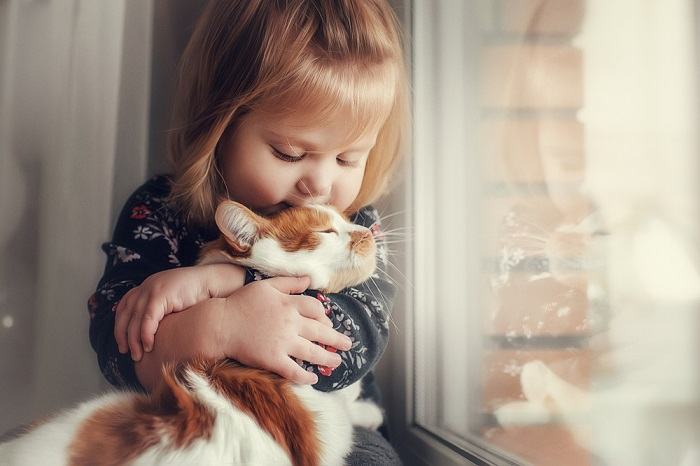
Adopting a cat has been associated with greater empathy, less separation anxiety, and fewer behavioral issues for children with ASD.
Research has suggested that interaction with pets can reduce loneliness and provide companionship, as well as reduce barriers to starting new conversations and social interactions for children with ASD. Companion animals have also been shown to help families of those with ASD by reducing stress.
Initial results from an ongoing study about shelter cat adoption and its effect on ASD affected children’s social skills and anxiety at the University of Missouri found that adopting a cat has been associated with greater empathy and less separation anxiety for children with ASD, as well as fewer behavioral problems.
2. Are Cats Good for Autistic Adults?
Most cat-specific research has focussed on their benefit for children with ASD. There are, however, multiple anecdotal accounts from adults with ASD reporting the benefit they have perceived in pet ownership. A recent study has found that having an animal improves the lives of autistic pet owners.
3. Which Cat Breed Is Best for an Autistic Child?
There isn’t a specific breed of cat that is better than another when choosing a companion for your autistic family member. Instead, it is best to consider a particular cat’s personality. The best cats are friendly, not fearful, and outgoing. Some breeds, such as Burmese or Ragdoll, may fit into this category.
However, every cat is an individual, and there are also nervous cats within these breeds. Cats that are more nervous than others may not be best suited to the unpredictable behavior that can accompany severe ASD. A recent study found that cats adopted as kittens might be more affectionate and less aggressive toward children, including those with ASD, compared to those adopted as adult cats.
Another study carefully assessed stress levels in shelter cats after adoption into families with children with ASD. This found that stress levels did not increase in cats adopted into families with children with ASD as long as cats were carefully screened, and new families were supplied with cat behavior information.
Therefore, while not all cats are suited to be companions for someone with ASD, many breeds are options for families with ASD, as a cat’s personality is key to finding the best fit.
Can Cats Have Autism?
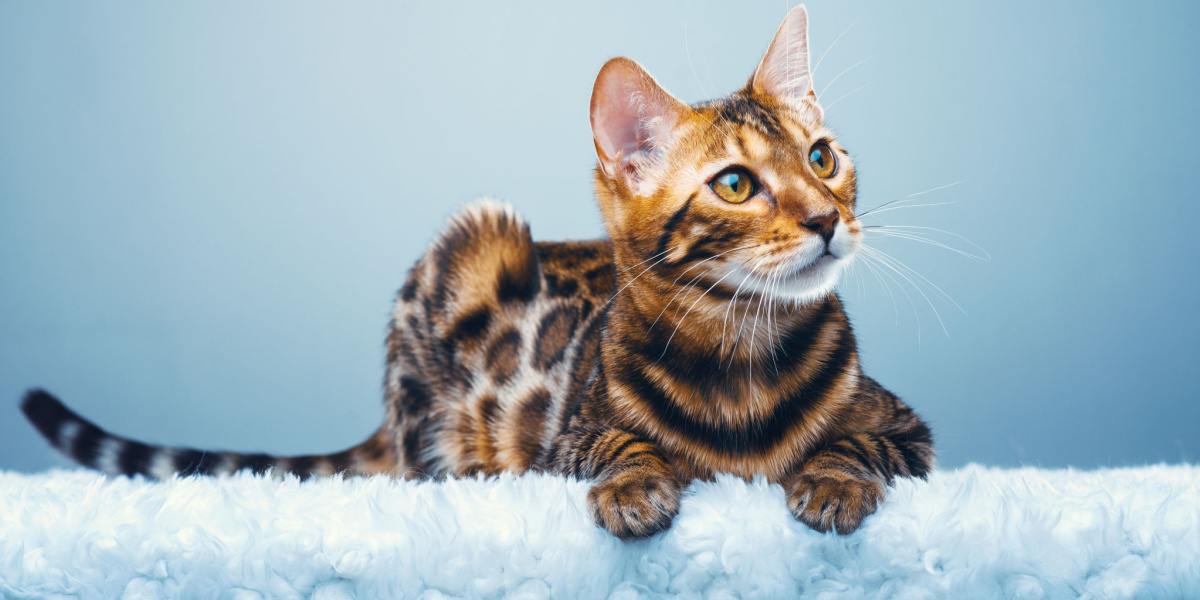
There is no such thing as an “autistic cat,” though some cats might have anxiety and compulsive behavior conditions.
Certain feline behavioral traits can leave pet parents wondering, can cats be autistic? Cats might show behaviors that could be considered mimicry of autism, such as anti-social behavior, compulsive or repetitive behavior, being non-responsive to verbal communication, or avoidance of physical contact.
There is no condition in veterinary medicine that is analogous to autism. There are defined anxiety and compulsive behavior conditions in the field of feline behavior, which some pet parents may confuse with ASD. Still, there is no such thing as an “autistic cat.”
Cats with behavioral conditions might have special needs in terms of social interaction or environmental set-up compared to cats without behavioral issues. Your veterinarian can advise you on these and refer you to a licensed veterinary behaviorist if needed.
Final Thoughts
While cats cannot sense autism in children or adults, there is evidence suggesting that having a pet cat can benefit people with ASD. The cat’s nature is an important consideration, and any family considering the introduction of a new cat to the household must closely consider all aspects of pet ownership before taking the leap. Any pet has needs that must be met to ensure their well-being.
These needs have financial considerations, and veterinary costs can be high. Taking on a new pet should never be taken on lightly. If you are unsure if introducing a new cat to your home is the right decision, then speak to your local veterinary care provider or licensed animal shelter for advice.
Also Read: 8 Most Common Cat Sleeping Positions and What They Really Mean
Frequently Asked Questions
Do cats like people with autism?
This very expansive question does not have a one-size-fits-all answer. The short answer is whether a cat will like someone with autism depends on the cat's personality (any cat owner knows not every cat is a people-person anyway!). Other factors to consider include how severely the autistic person is affected, whether the cat has grown up around the autistic person, and whether or not the cat has any behavioral issues that might impact their social skills.
Why are cats good for people with autism?
Multiple studies suggest animals are good for increasing prosocial behaviors in those affected by ASD. This includes reducing loneliness as well as increasing socialization and engagement in children with autism.
There is a suggestion that cats, in particular, might benefit people with autism as they tend to be lower maintenance than their canine comrades. Also, cats tend to maintain eye contact for shorter periods which is suggested to be more in line with the social needs of those with ASD.
Can my cat have autism?
There is no evidence to suggest that any non-human species, cats included, can be affected by autism. Some described feline behavioral disorders may be considered to have similar signs to some of those seen in people affected by ASD. Still, some normal feline behaviors can fall into this category too.
If your cat has had a sudden behavioral change, then it is always advisable to speak to your veterinarian for advice, as this may be a sign of a significant medical or behavioral problem that needs prompt treatment.
Can interacting with cats cause autism?
No. Autism is a developmental disorder, meaning it is a condition people are born with. Interacting with or cuddling cats does not cause autism. There is a study that suggests a parasite carried by cats, Toxoplasma gondii, might be associated with the development of autism in the unborn baby when it infects pregnant women.
Toxoplasmosis can cause many other severe problems in pregnancy. Pregnant women should avoid handling cat litter or feces, wash all fruits and vegetables, and wash their hands after gardening to prevent the risk of contracting toxoplasmosis.
-
Atherton. G, Edisbury. E, Piovesan. A and Cross. L (2022) They ask no questions and pass no criticism: A mixed methods study exploring pet ownership in autism. Journal of Autism and Developmental Disorders. DOI https://doi.org/10.1007/s10803-022-05622-y
-
Carlisle. G, Johnson. R, Wang. Z, Bibbo. J, Cjeak-Zamora. N and Lyons. L (2021) Exploratory study of cat adoption in families of children with autism: Impact on children's social skills and anxiety. Journal of Pediatric Nursing. 58 28-35 Available at https://habri.org/grants/projects/shelter-cat-adoption-in-families-of-children-with-autism-impact-on-childrens-social-skills-and-anxiety-as-well-as-cat-stress [Accessed 12th October 2022]
-
Hart, L, Thigpen. A, Willits. N, Lyons. L, Piccioto. I and Hart. B (2018) Affectionate interactions of cats with children having autism spectrum disorder. Frontiers in Veterinary Science. DOI https://doi.org/10.3389/fvets.2018.00039
-
Malki. J, Hussein. N and Malki. F (2021) Maternal toxoplasmosis and the risk of childhood autism: serological and molecular small-scale studies. BMC Pediatrics. 133:21 DOI https://doi.org/10.1186/s12887-021-02604-4
-
Shreve. K and Udell. M (2017) Stress, security, and scent: The influence of chemical signals on the social livers of domestic cats and the implications for applied settings. Applied Animal Behaviour Science. 187 69-76 DOI https://doi.org/10.1016/j.applanim.2016.11.011

